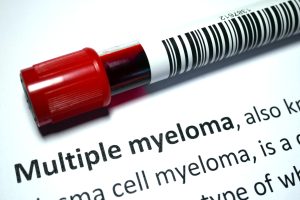
24 RCCA Physicians Named to 2025 Castle Connolly ‘Top Doctors’ List for Exceptional Cancer Care
A cancer diagnosis can be frightening. An individual may worry about how, or if, they will get better. The future becomes unclear and the strain
HIPAA Alert: Potential Data Breach Learn More
Questions on Oncology, Hematology and/or Infusion Clinical Services due to COVID-19 Crisis – CALL 833-698-1623
Important Information for Our Patients Regarding the Coronavirus.
RCCA Providing Area Cancer Patients with Access to Care During Coronavirus Outbreak
RCCA Offering Patients Virtual Visits During Coronavirus Pandemic
With the ability to help treat several types of cancers – as well as many other conditions – monoclonal antibodies are the immune system’s ally. At Regional Cancer Care Associates (RCCA), the team of medical oncologists use innovative monoclonal antibody therapies as key components of patients’ personalized treatment plans. Serving patients in New Jersey, Connecticut, Maryland, and the Washington, D.C., area, RCCA has expertise in providing immunotherapy treatments with monoclonal antibodies, which are also known as mAbs. Learn more about mAbs and their role in the fight against cancer.
Monoclonal antibodies are man-made proteins that mimic the behaviors of antibodies found naturally in the body. Antibodies are an important part of the body’s immune system that recognize and attack foreign invaders, such as viruses and bacteria. Monoclonal antibodies are made in a laboratory and used in immunotherapy medications to stimulate a patient’s immune system.

Scientists use mAbs to target certain cancers and other diseases, such as autoimmune disorders. In cancer treatment, monoclonal antibodies are designed to target specific proteins that are found only on the surface of cancer cells. Because mAbs deliver cancer treatments to malignant cells, they enhance the body’s natural defenses in fighting off cancer. Typically, monoclonal antibodies are given intravenously as an infusion treatment.
Monoclonal antibodies were developed in the 1970s. Today, there are dozens of monoclonal antibodies approved by the Food and Drug Administration (FDA) for use in the treatment of cancer and other diseases.
Each monoclonal antibody has a unique function. In cancer treatment, mAbs have several applications. As a form of targeted therapy, they can:
Other types of monoclonal antibodies boost a person’s immune system by inhibiting the checkpoints the body uses to stop itself from attacking healthy cells. Cancer cells can activate these checkpoints, basically “hiding” from the immune system’s surveillance system, allowing tumors to grow and spread.
Monoclonal antibodies can be combined with chemotherapy drugs to deliver treatment directly to cancer cells, resulting in a more targeted therapy that spares healthy cells. Monoclonal antibodies also may be combined with radioactive particles to transport radiation therapy directly to tumors.
Currently, mAbs are used to treat several different kinds of cancer. These include:
Monoclonal antibodies are produced in a variety of ways, including:
A common method for producing mAbs is hybridoma technology, which uses antibody-producing B lymphocytes from mouse specimens.
Antibodies are specific, meaning that each antibody targets a particular cell protein. Monoclonal antibodies are designed to attach to specific molecules or proteins on the surface of cancer cells. This binding specificity means the mAbs don’t attack healthy cells.
Beyond cancer treatment, monoclonal antibodies play a role in managing many chronic conditions. These include autoimmune diseases such as rheumatoid arthritis and multiple sclerosis. When the body’s natural defenses can’t tell the difference between healthy cells and foreign invaders, it can mistakenly attack its own cells. This is known as an autoimmune response. Immunotherapy treatments with mAbs can help slow the progression of autoimmune diseases.
Rheumatoid arthritis (RA) is an autoimmune disease that develops in the joints, often in the wrists and knuckles. RA causes joint pain, swelling, and stiffness. Over time, patients with RA can lose joint function. There are several FDA-approved monoclonal antibodies for RA. These drugs can lower inflammation and inhibit the autoimmune response.
Another autoimmune disease, multiple sclerosis (MS) damages the nerve fibers in the central nervous system. Over time, patients with MS can have vision damage, difficulty walking, and memory problems. There’s no cure for MS, but certain drugs can slow the progression of the disease. Injection or infusion treatments with mAbs can minimize MS flare-ups and help limit nerve damage.
Currently, several FDA-approved treatments use monoclonal antibodies. These include:
In recent years, continued cancer research has led to new advancements in monoclonal antibody therapy. These include:
Cancer drugs such as those used in chemotherapy work by damaging cells so they can’t grow and divide. One challenge with chemotherapy drugs is that they can also attack rapidly dividing healthy cells, which is why some patients who undergo chemotherapy lose their hair. Antibody-drug conjugates use mAbs that are chemically linked to cancer drugs. The monoclonal antibodies help deliver higher concentrations of chemotherapy to cancer cells while healthy cells are spared, reducing potential side effects.
Most monoclonal antibodies bind to one specific antigen. Bispecific monoclonal antibodies (BsAbs), however, can simultaneously bind to two different antigens, or two different parts of the same antigen. This is a promising development in the field of cancer treatment because some tumors can become resistant to checkpoint inhibitors, making these drugs less effective over time. By targeting more than one molecule, bispecific monoclonal antibodies may be able to avoid drug resistance and fight cancer more effectively.
Some patients experience side effects when undergoing immunotherapy treatments with monoclonal antibodies. Possible side effects include:
In rare cases, patients who receive immunotherapy treatment may experience cytokine release syndrome (CRS). This is a serious condition that occurs when the body releases too many cytokines, the cell-signaling proteins that help control immune and blood cells. Patients experiencing CRS need immediate attention to control inflammation and prevent possible organ failure.
Monoclonal antibodies are made by cloning a white blood cell. They are produced in medical laboratories using mouse and/or human proteins.
In rare cases, people can have serious reactions to monoclonal antibody therapy. Patients should consult with their provider to determine if the benefits of monoclonal antibody therapy outweigh any potential side effects.
Monoclonal antibodies are regulated by the FDA.
As cancer care advances, researchers are finding new ways to use monoclonal antibodies for targeted treatments. Regional Cancer Care Associates stays on the cutting edge of cancer treatment, offering immunotherapy and infusion therapy for many different cancer types and other conditions. With more than 20 locations throughout New Jersey, Connecticut, Maryland, and the Washington, D.C., area, patients can receive personalized care from experienced medical oncologists close to home. RCCA also offers benign hematology services for the treatment of blood disorders. For more information or to request an appointment, contact us today.
With more than a dozen mAbs approved by the U.S. Food and Drug Administration (FDA) and more being researched, this method of cancer treatment aligns with our vision at Regional Cancer Care Associates. We strive to provide only the latest, science-based breakthroughs in cancer care at each of our 30 locations across New Jersey, Connecticut and Maryland, helping our patients to achieve the best possible outcomes. For more information, contact us today.

A cancer diagnosis can be frightening. An individual may worry about how, or if, they will get better. The future becomes unclear and the strain

A lung cancer diagnosis can be life-changing, bringing uncertainty and many questions about available treatments. At Regional Cancer Care Associates (RCCA), we understand the importance

Multiple myeloma (MM) is a rare type of blood cancer that often develops without early symptoms, making awareness of risk factors essential. Regional Cancer Care

Regional Cancer Care Associates is one of fewer than 200 medical practices in the country selected to participate in the Oncology Care Model (OCM); a recent Medicare initiative aimed at improving care coordination and access to and quality of care for Medicare beneficiaries undergoing chemotherapy treatment.